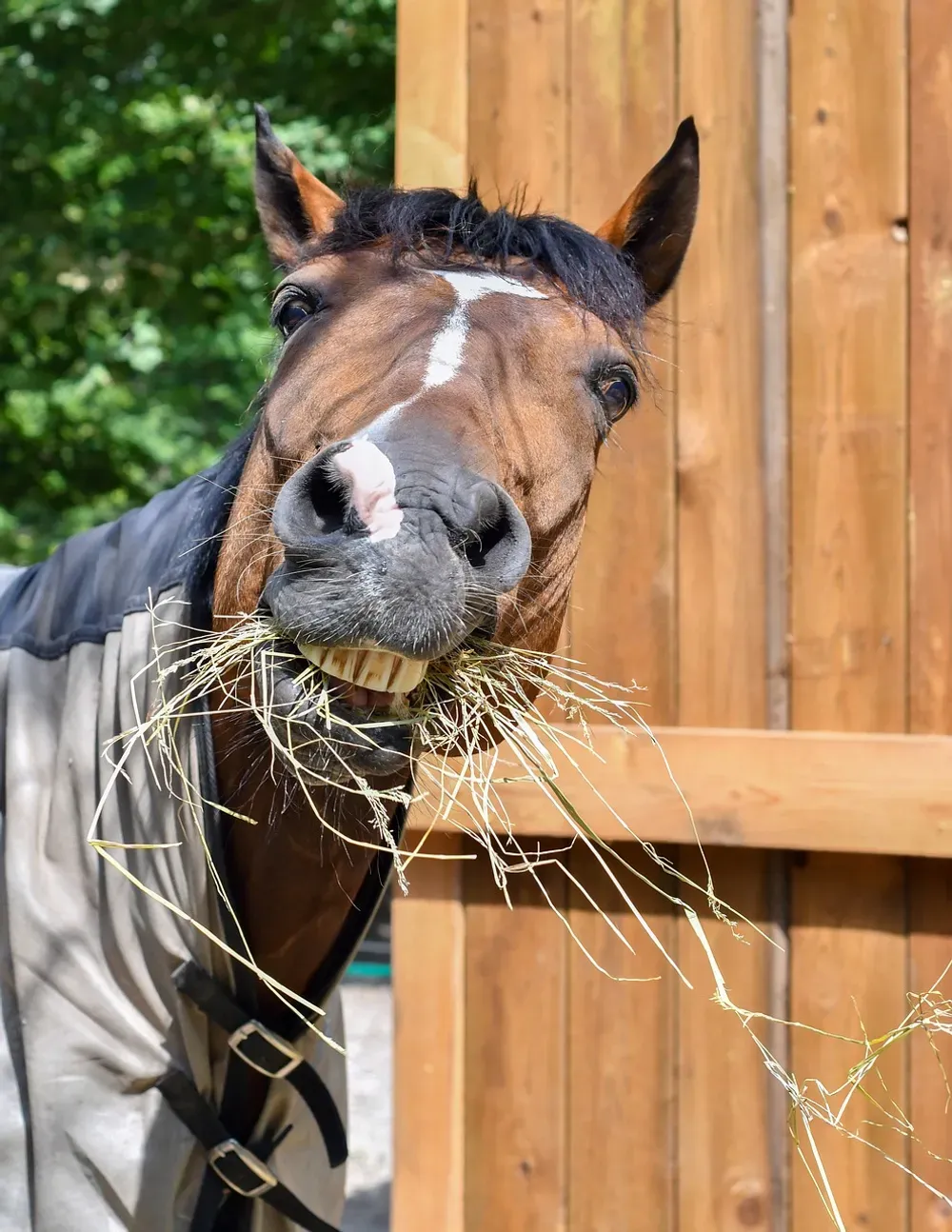
Table of Contents
Why is my horse eating his straw bedding?
Horses will eat their straw bedding for a number of reasons, this can become a health problem. As the owner of a horse with this habit, you will need to know what is going on, and the starting point is to identify why your horse is eating his straw bed.
Let's take a look at 3 of the main reasons:
1. Boredom and not enough to occupy the horse's mind
Boredom and not having enough to occupy the horse's mind are common with horses who spend too much time in the stable. However, all horses will have different boredom thresholds. There will be some horses that are adequately fed when stabled but as soon as their hay net is exhausted start to eat their straw bed. These horses are not necessarily greedy feeders and they might just need to have their minds occupied. If your horse is one of these be even more careful if they have a stable vice like crib-biting, windsucking, weaving or box walking because all of these things are triggered by boredom.
2. Inadequate and spasmodic feeding
Some people stable horses to control their calorific intake and this is common with laminitis horses. However, long periods of standing without adequate feed will encourage the horse to eat its bedding. In addition, any horse with a stable vice will resort to their vice as a stress release. Controlling a horse's calories can not be achieved by thinking of them as humans. Humans have evolved as hunters and can spend considerable periods of time with empty stomachs but horses have not evolved in this way.
Horses are grazing animals and need trickle feeding for a healthy gut
Any horse standing in a stable for long periods of time without being fed adequate hay risks developing health problems from stomach ulcers to colic.
3. Unsuitable feed to meet the horse's needs.
Your horse may not eat the hay you provide because it is mouldy or made from poor pasture. In these situations, straw bedding is a far more palatable alternative. It is often common for horses to be fed haylage which has had the dust extracted but is also high in calorific value. This product also has a smell that is not always liked by horses. So these horses do not like the rich food and then have no choice but to eat their bedding.
How do I know there is a problem with my horse eating its straw bed?
This is a matter of degree as your horse can have straw in their diet, however, if they eat too much straw this can result in gut impactions and colic. So don't let more than 30% of the roughage come from straw.
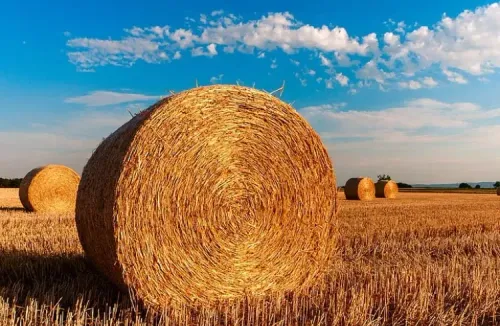
Article Suggestion
The Pros and Cons of Feeding Straw to HorsesHow to stop your horse eating too much of its straw bed
Slow down your horse's hay consumption
This will keep your horse occupied for longer and will make him less inclined to eat straw. This assumes the hay has been well made and stored and is palatable. A technique I have found to be best is to suspend a small hole net from a rafter ring. To do this attach a strong and adequately secured loop rope through the rafter ring which must be positioned so that the net will not touch a stable wall. Now tie the net at the correct height for your horse using the rope loop and not the rafter ring as that will be out of reach.
This system works very well as the net will spin easily and this slows down the consumption of hay. In addition, the net will not be rubbing against the stable wall and will last a considerable length of time.
It is also possible to buy products that slow down hay consumption such as the Kerbl Feed Rack but this route will be considerably more expensive.
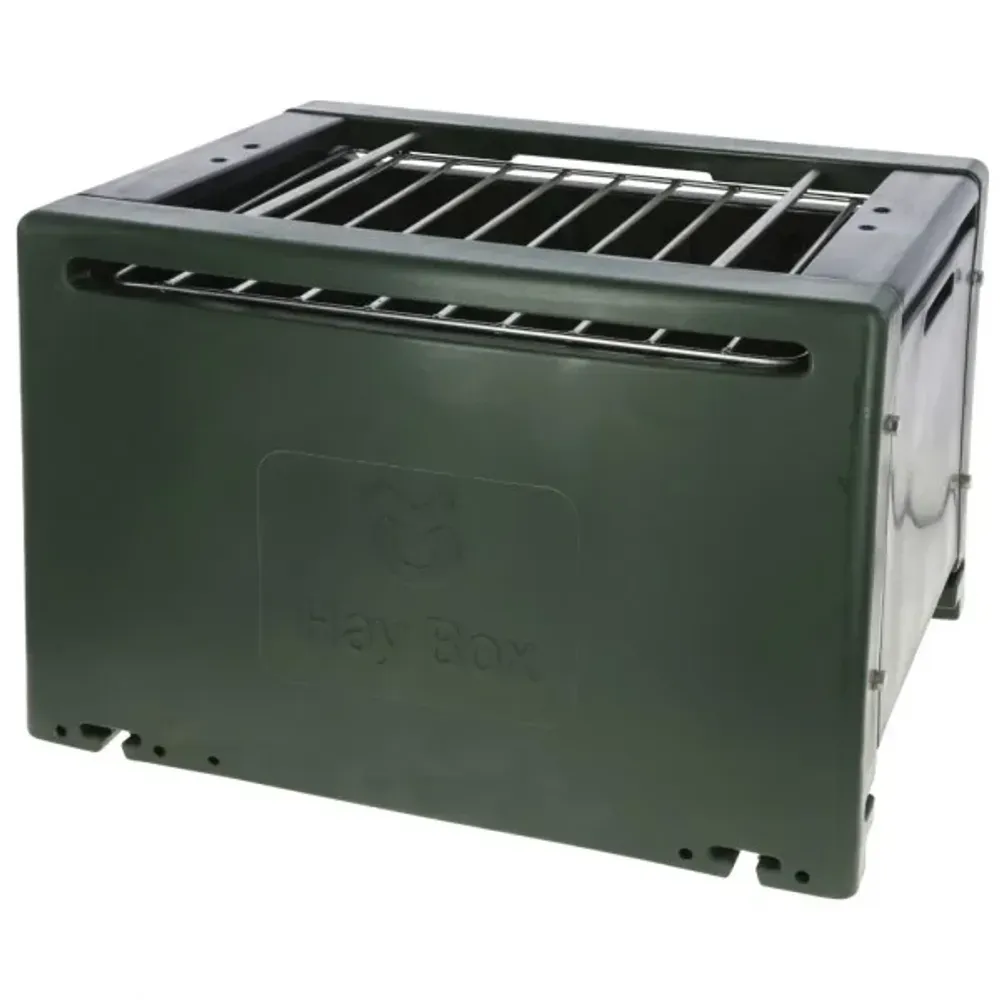
The Kerbi Feed Rack
The kerbl Feed Rack is robust and can be used with steamed or soaked hay. It considerably reduces the time it takes for a horse to consume its hay ration and can be used in a stable or on a paddock.
Feed your horse well-made hay
If the hay you are feeding is not adequate the poor horse will have no option but to eat its bed. The hay does not need to be high in sugar but it must be free from mould. Eating mouldy hay will affect your horse's health and should always be avoided.
Reducing the calorific content of your horse's hay
You may have a horse that is always after food and is prone to obesity. This animal will eat up its hay ration quickly and then start on the straw bed. Feeding well-soaked hay will reduce its calorific content so that you can feed a more significant amount. This will keep your horse away from its bedding but obviously, you will use up more hay.
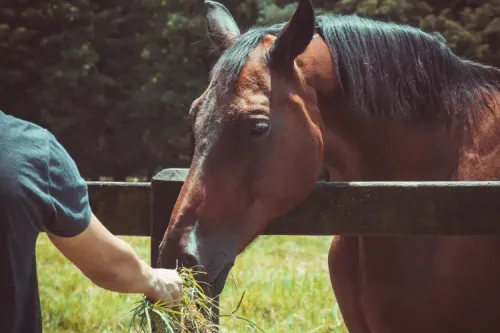
Article Suggestion
How To Soak Hay for HorsesMixing the old and new straw in your horse's stable
Many horses only eat freshly laid straw so a good technique is thoroughly mixing the new straw with the old straw from the existing bed. This works well because the old straw is always slightly soiled despite the stable being mucked out daily and the mixing does put many horses off consuming the fresh straw.
Adding something chemical to your horse's bedding
This is often effective and is achieved by no more than sprinkling a little disinfectant over the bedding which will also give a fresh smell and provide more hygiene. This is unsuitable for horses that still eat their bedding as consuming disinfectant is not advised.
The take-home message
Now you will be able to decide whether it is necessary to prevent your horse from eating his straw bed and if so how to do it. The important thing will be to prevent your horse from developing gut impactions from eating too much straw.
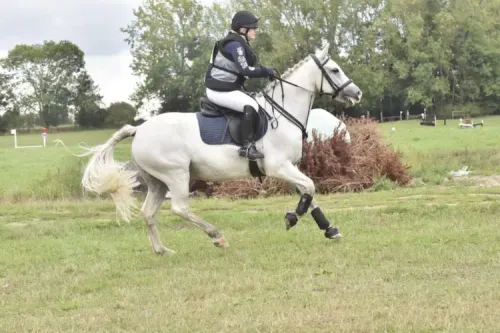
Article Suggestion
Inspirational Louisa and Gabriel Gallop to the end of the Rainbow
